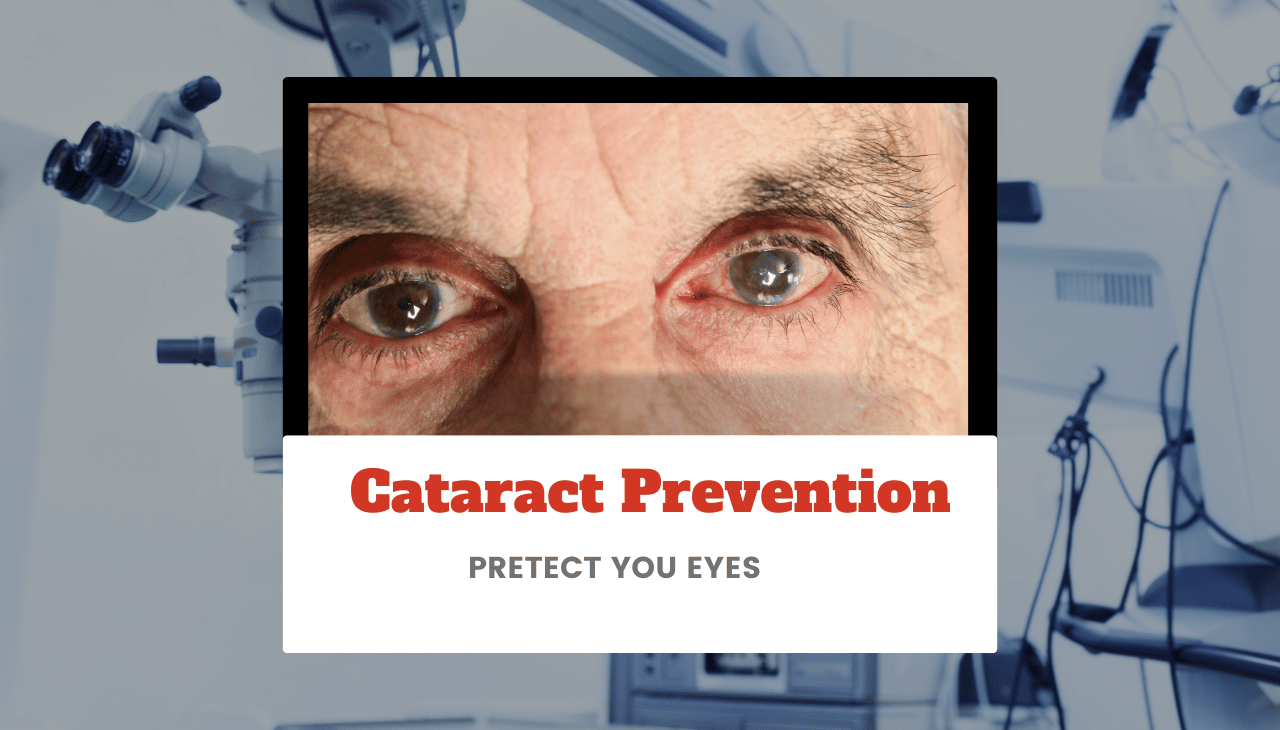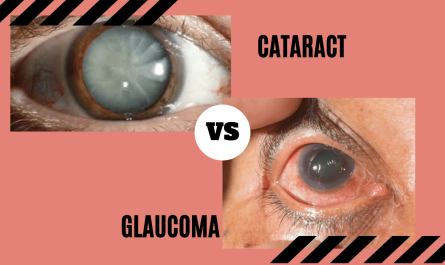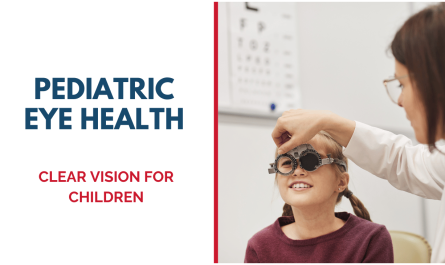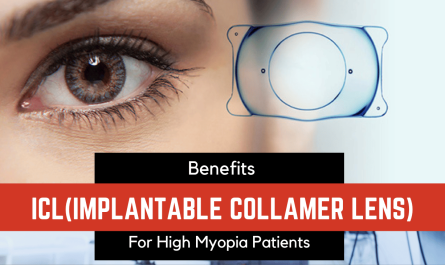Introduction
Cataracts are one of the most common age-related eye conditions affecting millions globally. They occur when the natural lens of the eye becomes cloudy, leading to blurry vision, sensitivity to light, and difficulty seeing at night. Though cataracts are most often associated with aging, they can affect younger individuals due to genetics, trauma, or medical conditions.
Protecting your eyes from developing cataracts is possible with a few healthy habits and lifestyle changes. In this blog, we’ll explore what Cataract Prevention are, the causes and symptoms, how to prevent them, and when to seek professional help.
Understanding Cataract Prevention
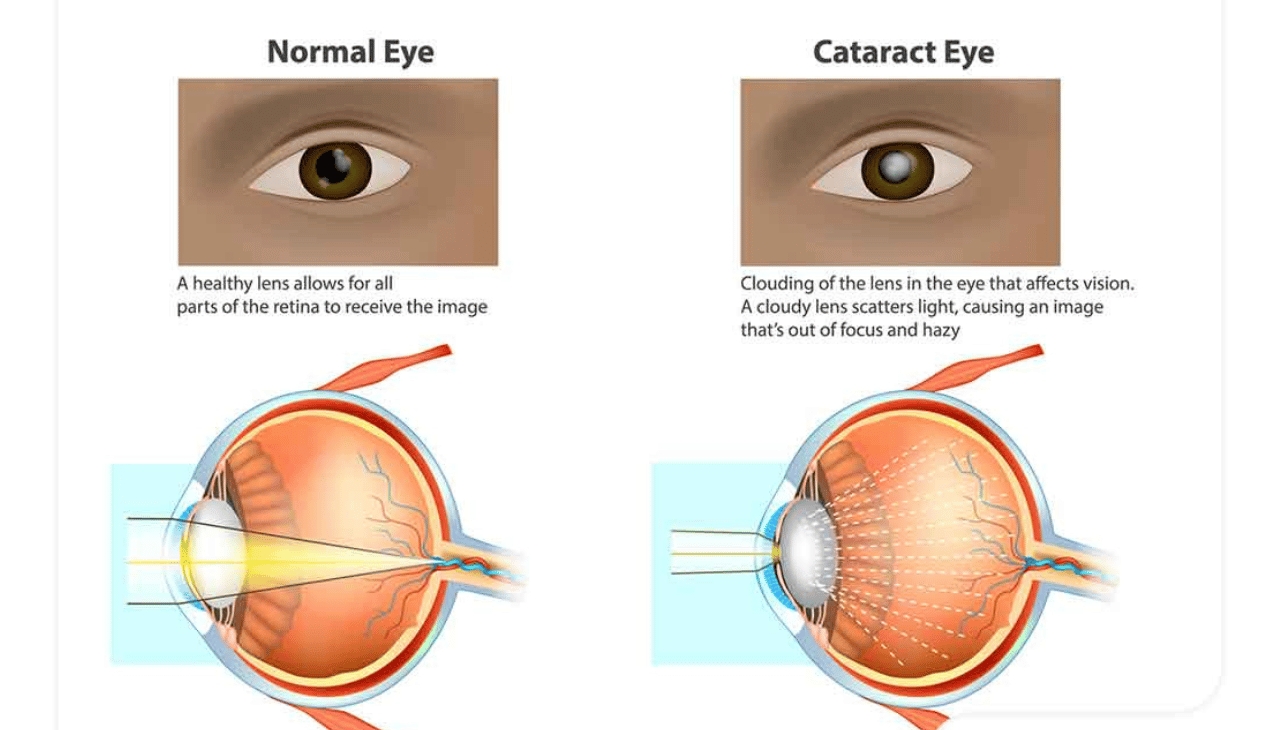
Cataracts form when proteins in the eye’s lens break down and clump together, creating cloudy spots that interfere with vision. This can happen due to age, exposure to UV rays, smoking, or even prolonged use of certain medications.
There are several types of cataracts, including:
- Nuclear Cataracts: Develop in the center of the lens, usually due to aging.
- Cortical Cataracts: Begin at the lens’s edge and spread inward.
- Posterior Subcapsular Cataracts: Affect the back of the lens and often develop faster.
Cataracts can progress slowly, making early detection essential for effective treatment.
Causes and Symptoms of Cataracts
Causes:
- Aging: The most common factor.
- UV Exposure: Prolonged exposure to sunlight without protection.
- Smoking and Alcohol: Linked to faster cataract development.
- Medical Conditions: Diabetes, hypertension, and obesity.
- Eye Injury or Surgery: Trauma can accelerate cataract formation.
- Genetics: Family history may increase risk.
Symptoms:
- Cloudy or blurry vision
- Difficulty seeing at night
- Faded colors
- Sensitivity to light and glare
- Frequent changes in prescription glasses
- Double vision in a single eye
Tips for Cataracts Prevention
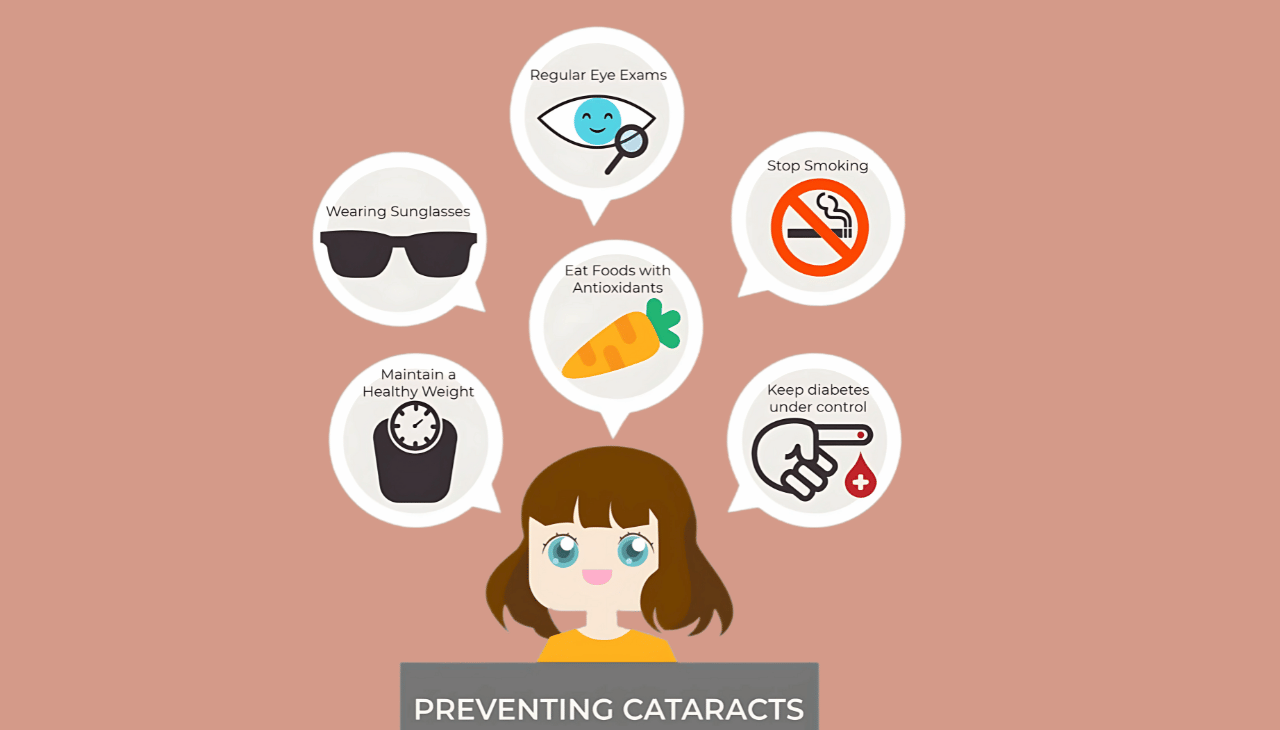
- Wear UV-Protective Sunglasses Prolonged exposure to UV rays increases the risk of cataracts. Choose sunglasses that block 100% of UVA and UVB rays.
- Eat a Nutrient-Rich Diet Antioxidants like vitamin C, vitamin E, and carotenoids (lutein and zeaxanthin) protect the eyes from oxidative stress. Include leafy greens, citrus fruits, eggs, and nuts in your meals.
- Quit Smoking and Limit Alcohol Smoking and excessive alcohol consumption speed up the formation of cataracts. Quitting these habits can greatly reduce risk.
- Manage Health Conditions Keep conditions like diabetes and high blood pressure under control. Unregulated blood sugar can damage the eye’s lens over time.
- Protect Eyes from Injury Use protective eyewear during sports or activities involving hazardous materials to prevent eye trauma.
Environmental Factors Contributing to Cataracts

Environmental exposure plays a major role in the development of cataracts. UV radiation from sunlight is one of the leading causes of oxidative damage to the lens, accelerating clouding. Polluted environments, prolonged exposure to smoke, and radiation can also contribute. Protective eyewear, such as UV-blocking sunglasses and wide-brimmed hats, can go a long way in reducing these risks. Staying indoors during peak sun hours and using air purifiers in heavily polluted areas are additional preventive steps.
Regular Eye Exams for Cataract Prevention
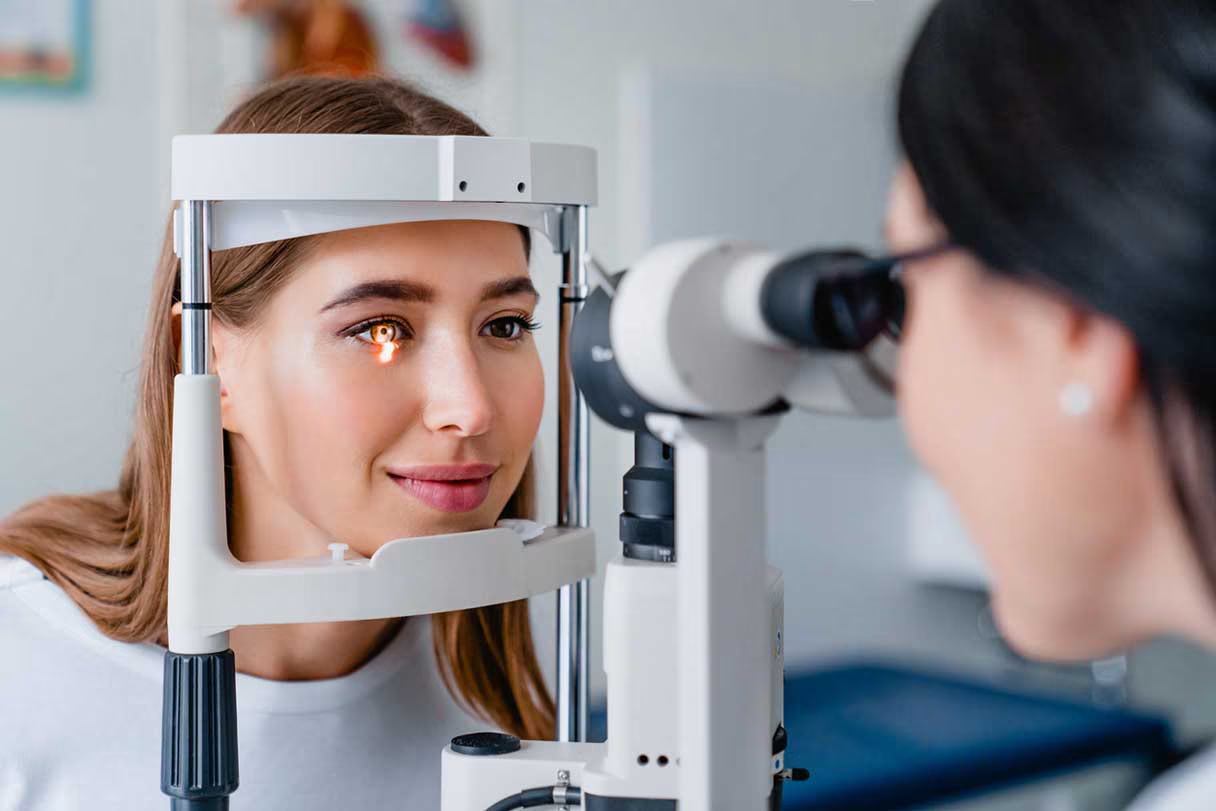
Regular eye exams are critical in the early identification and management of cataracts. A comprehensive eye checkup allows eye care professionals to monitor changes in your vision and detect cataracts before symptoms become severe. Early diagnosis means you can implement changes—like improving your diet, managing health conditions, or adjusting your environment—to slow cataract progression. If you’re over 40 or have risk factors, make annual eye exams a priority.
Early Detection for Cataract Prevention
Detecting cataracts in their early stages enables more effective treatment planning. When caught early, the progression of cataracts can often be delayed, and vision issues can be corrected with glasses or lifestyle adjustments. Early detection also makes surgical treatment more straightforward and safer when it becomes necessary. By identifying changes before vision loss becomes debilitating, patients can maintain a better quality of life.
Benefits of a Healthy Lifestyle for Eye Health
Living a healthy lifestyle is one of the best defenses against cataracts. Antioxidant-rich foods like berries, oranges, and leafy greens can reduce oxidative stress in the eye’s lens. Staying hydrated helps maintain eye moisture, while quitting smoking reduces toxin buildup that accelerates lens damage. Regular exercise improves blood flow, ensuring the eyes get essential nutrients. Controlling blood sugar levels and managing conditions like hypertension also significantly reduce cataract risk.
When and Where to Seek Help
If you’re experiencing any of the symptoms mentioned above, it’s essential to consult an eye specialist for a comprehensive evaluation. Early diagnosis leads to better outcomes and helps preserve vision.
Introducing Laxmi Eye Hospital
Laxmi Eye Hospital is one of the largest and most trusted eye care chains in Mumbai, with a legacy of over 30 years in delivering world-class treatment. With a team of highly experienced ophthalmologists and a commitment to transparent care, Laxmi Eye Hospital offers cutting-edge diagnostic services and advanced treatment under one roof.
From cataract surgery to LASIK, retina care, glaucoma treatment, and pediatric ophthalmology, Laxmi Eye Institute provides a complete range of eye care services at an affordable cost.
Consultation Locations:
- Dombivli: 1st Floor, Laxmi Eye Institute, SS Business Park, Gharda Circle, Azde Gaon, Tata Power Company Limited, Dombivli East, Mumbai, Maharashtra 421201
- Kharghar: Office 108, 109 and 110, 1st Floor, Anant CHS Plot 31, Sector 04, Kharghar, Navi Mumbai, Maharashtra 410210
- Panvel: Mulla Hamid Rd, Old Panvel, Panvel, Navi Mumbai, Maharashtra 410206
- Kamothe: Shop No 26/27, Near ICICI Bank, Kamothe, Navi Mumbai, Pratik Gardens, Plot No 153 to 165, Sector 34, Maharashtra 410209
To book an appointment, visit our website or contact the nearest clinic location today.
FAQs
1. Can cataracts be prevented completely?
While cataracts can’t always be prevented, healthy habits and regular eye exams can significantly delay their development.
2. At what age do cataracts usually begin to form?
Most people begin to develop cataracts after age 40, but noticeable vision problems often start after 60.
3. Is cataract surgery safe?
Yes, it’s one of the safest and most commonly performed surgeries with a high success rate.
4. Can children get cataracts?
Yes, though rare, children can develop congenital or traumatic cataracts.
5. How long does cataract surgery take?
Typically, the surgery lasts 15 to 30 minutes and is usually done on an outpatient basis.
Conclusion
Cataracts can significantly affect your quality of life if left untreated. The good news is that prevention is within reach through simple lifestyle changes and regular check-ups. If you notice symptoms or have concerns about your eye health, don’t delay—seek expert care.
At Laxmi Eye Hospital, we’re committed to protecting and restoring your vision with compassion and excellence. Book your consultation today and take the first step toward clearer, healthier eyesight.

